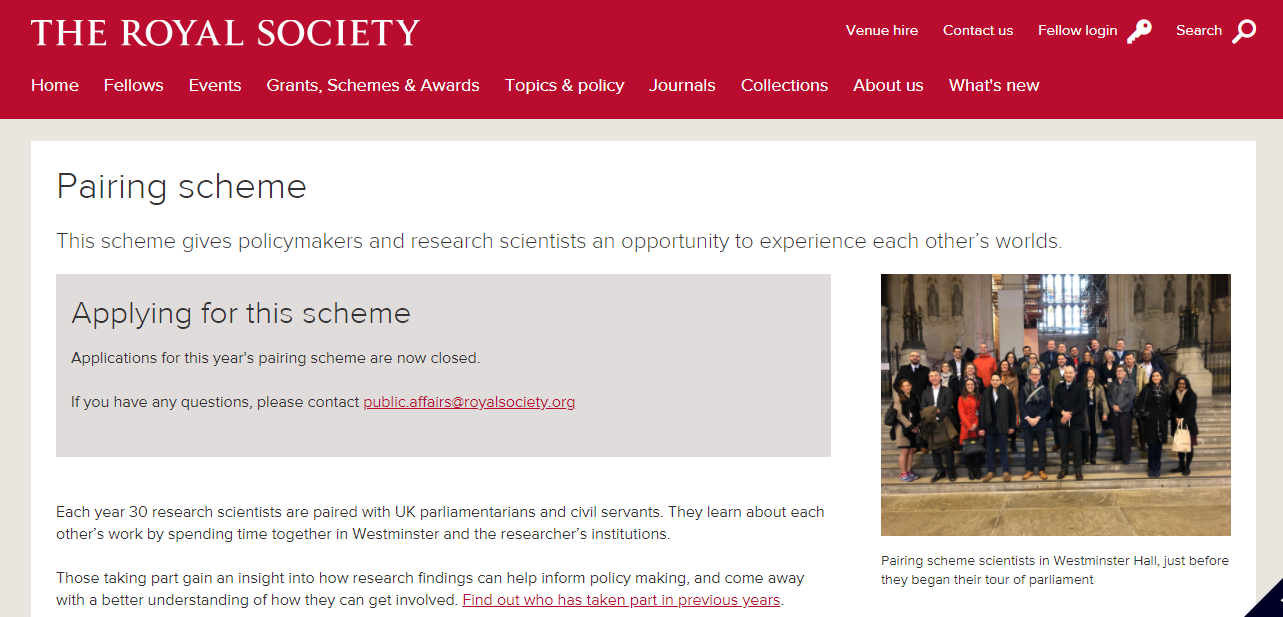In this blog post, Dr. Holly Joseph (Associate Professor of Language Education and Literacy Development, University of Reading) shares her experience taking part in the Royal Society Pairing Scheme earlier this month as well as her top tips on feeding research into government policy.
My week in Westminster
Last week, I was lucky enough to spend a (virtual) week at Westminster as part of the Royal Society Pairing Scheme. The scheme pairs a scientist with an MP or civil servant with the aim of both parties gaining a better understanding of how scientific research can inform policy and laying down paths of communication.
As a researcher interested in the science of reading, I initially thought it was important that I was paired with someone with a particular interest in this area; I soon discovered that I was completely wrong. Politicians and civil servants are necessarily generalists; even if they do have particular interests, they must also be well-informed about all other areas they might be asked about. Therefore, what I gained from the experience was not making a direct link to someone in order to ‘tell them what they needed to know’ about reading research, but rather an insight into the lives of policy-makers and how they make use of the research that is available.
I came away with some top tips for anyone who wants their research (not specific to science) to feed into government policy:
- You need a simple and accessible headline for your research and why it matters for policy – the usual ‘more research is needed’ and ‘there is some inconsistency in the findings’ is of precisely zero use to someone who needs to think about policy.
- You should not get bogged down in party politics – if you have research that is relevant to government policy then your job is to get that message out; it is the policy makers who decide what to do with the evidence, not you.
- You need to find the right audience: if you can make links with a select committee, All-Party Parliamentary Group, or individual MP who is already invested in the issue you have relevant evidence for, you are halfway there.
- It does not have to be about your own research. Remember you are also an expert in your field and can help by synthesising and summarising the field as it stands – this is also incredibly useful for policy makers.
I also came away with a newfound respect for MPs: each one who spoke to us was reflective, candid and incredibly knowledgeable. The pantomime we see at PMQs is I think the very worst of politicians; what we saw during our week at Westminster was perhaps the best. I would highly recommend this scheme to others. You can find more information here.
You can learn more about Dr. Joseph’s research interests here.



I liked these tips.
Really is necessary to ‘tell them what they needed to know’
So I think it is essential to make use of research when making policy.
Thank you so much Holly.
Best Wishes,
Lama